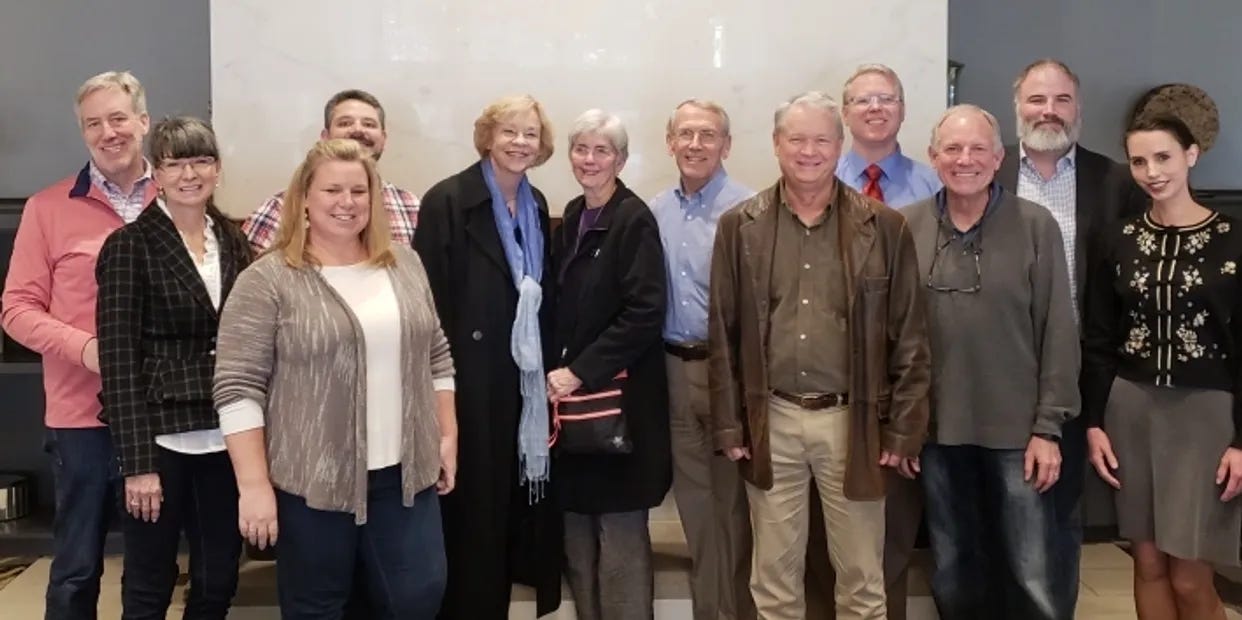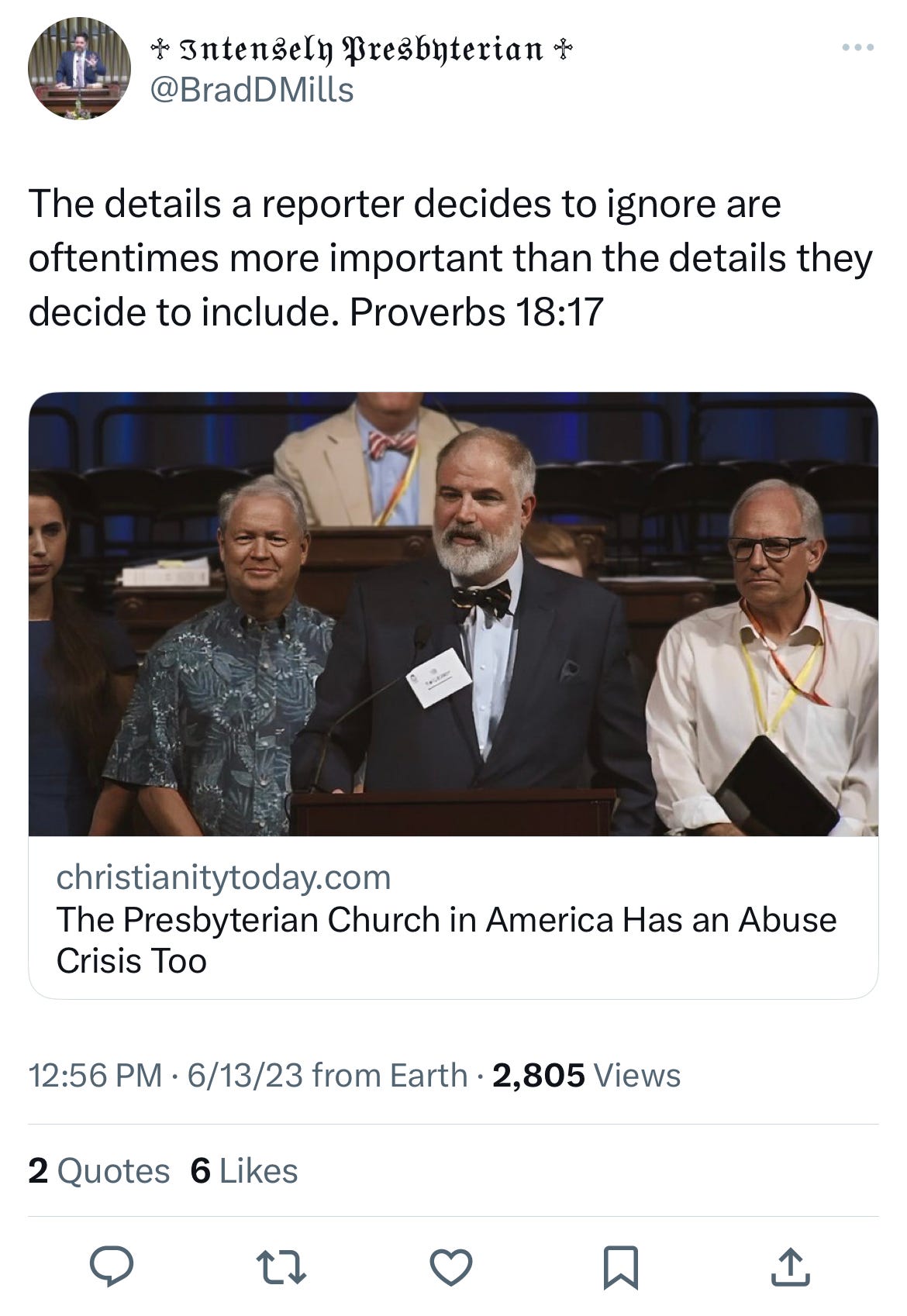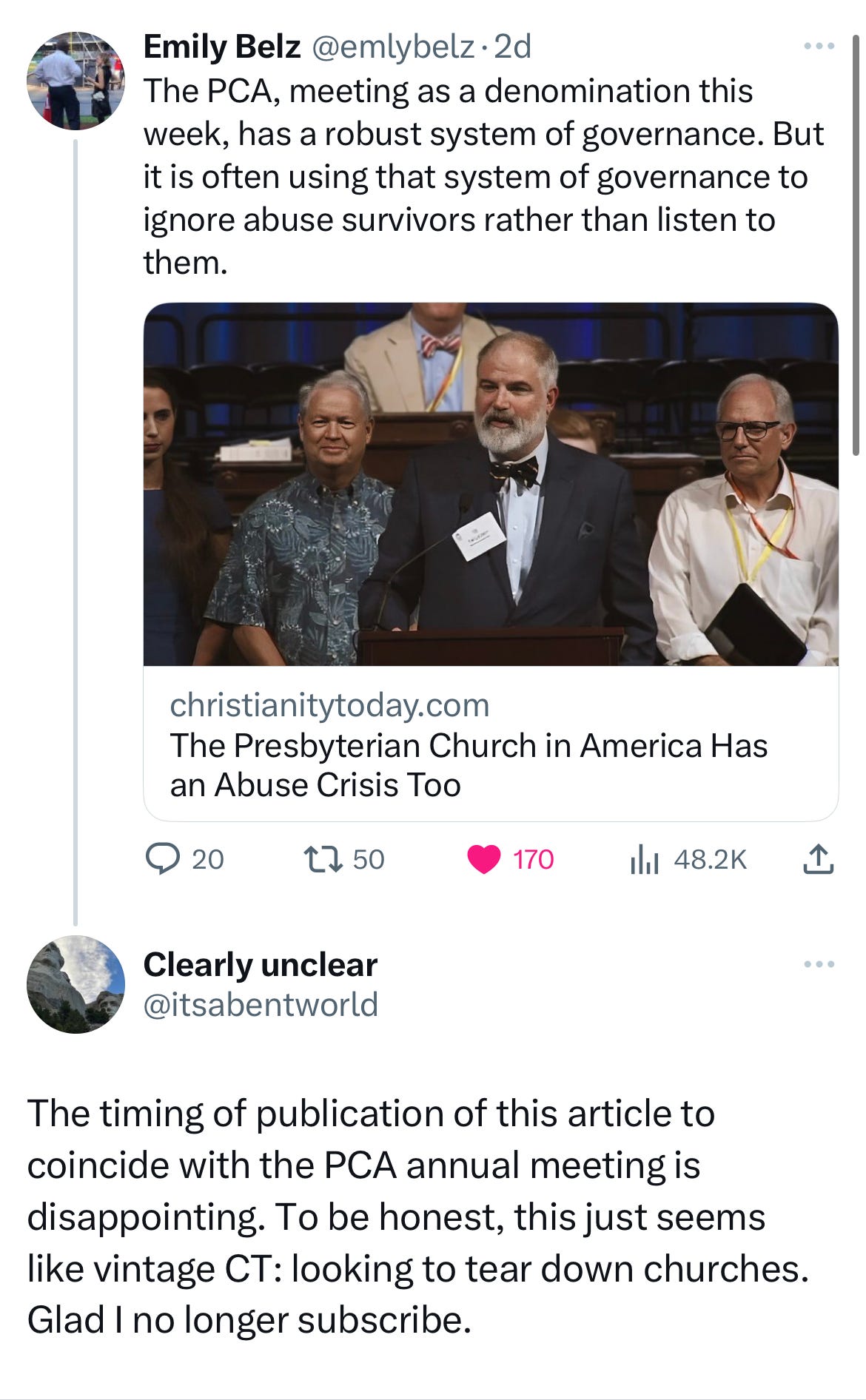Where Do We Go From Here?
Content warning: sexual abuse, rape
It’s been a long week.
The annual denominational meetings of the Southern Baptist Convention and the Presbyterian Church in America were painful for abuse survivors. Each denomination faced a call to significant reform last June, 2022, including the report of the Ad Interim Committee on Domestic Abuse and Sexual Assault. One year later, it’s hard to find evidence of progress. The PCA’s assembly of ordained leaders voted down every constitutional amendment proposed from the DASA report for better abuse prevention and response.
Members of the DASA Committee
Christianity Today also issued an alert that the PCA has an abuse crisis, too. The article featured the stories of a female survivor of attempted rape by a Surfside Presbyterian Church elder as well as my wife Kristen who was fired for her adamant advocacy for this woman. The point in sharing those stories was their representative nature, as Emily Belz wrote: “Tates Creek [a positive church response to abuse allegations] is the exception, abuse advocates say, while Surfside is more of the rule in the PCA’s response to abuse.”
How leaders response to cases of abuse says a lot about church and denominational culture. Additionally, how pastors and elders respond to reporting on abuse says a lot, not just about each individual leader, but also about denominational culture. Because the Surfside story is not merely an anecdote, some responses by PCA pastors to the CT article are indicative of the denomination as well. And there were some deplorable responses:
This was from a pastor who was mentored by the pastor of Surfside Pres. Clearly he believes he knows details not divulged by Belz that would tell a different story. Sadly, tragically, infuriatingly, this is a common response from church leaders. The details they choose to emphasize favor the male leader being accused. Indeed, in the Surfside case, the pastor referenced Proverbs 18:17 to case doubt on the survivor’s allegations:
“The one who states his case first seems right, until the other comes and examines him.”
The regular use of this particular verse demonstrates suspicion and doubt, rather than a call for impartiality. The irony is, for Rev. Mills “the one who states his case first” was his pastor friend from Surfside, not the woman who came forward. He hasn’t even heard from “the other [who] comes and examines him”, and so is in no position to be guided by that proverb. His tweet exemplifies partiality to the highest degree, what I have called clergy bias.
Here is another tweet from a former co-worker of the Surfside pastor:
This is from pastor Gabe Sylvia, aka Clearly unclear, who changed his account name after receiving a large number of critical responses to his tweets regarding the CT article. He has a personal connection to the Surfside Pres pastor, and therein lies the problem. When pastors’ friends are brought under scrutiny, they are liable to biased and prejudicial responses. He can blithely dismiss a horrific account of attempted rape and church cover-up by casting blame on the reporter. I fear for women and children in the church of such a pastor.
But again, my point is not to point the finger at two specific pastors. Ask survivors and advocates and they will tell you this is the playbook: point out corrupt leadership and you will quickly find yourself the target of a defensive counter attack.
That is what happened at Surfside Presbyterian Church. The responses from the cronies of that pastor confirm the truth of the story.
As long as there are male leaders whose knee-jerk response is to disbelieve, dismiss, deny, discount, deflect, and discard the stories of abuse survivors, churches and denominations filled with such men are not safe.
Quote from Martin Luther King, Jr.
[T]he church as a whole has been all too negligent on the question of civil rights. It has too often blessed a status quo that needed to be blasted, and reassured a social order that needed to be reformed. So the church must acknowledge its guilt, its weak and vacillating witness, its all too frequent failure to obey the call to servanthood. Today the judgment of God is upon the church for its failure to be true to its mission. If the church does not recapture its prophetic zeal, it will become an irrelevant social club without moral or spiritual authority.”1
Recommended Reading
[
Thesis 96
](/blog/thesis-96-f50)[
Thesis 96
](/blog/thesis-96-f50)
·
November 28, 2022
[
Acts 29 chose its name to signal the next chapter of evangelism and church planting after the last chapter in the book of Acts, ch. 28. Likewise, Thesis 96 is a call to continue the work of reformation inspired by Martin Luther’s Ninety-Five Theses (later titled
](/blog/thesis-96-f50)
[
Read full story
](/blog/thesis-96-f50)
Question
Where do we go from here?
1 Where Do We Go From Here: Chaos or Community? (Boston MA: Beacon Press, 1968), p. 102.



